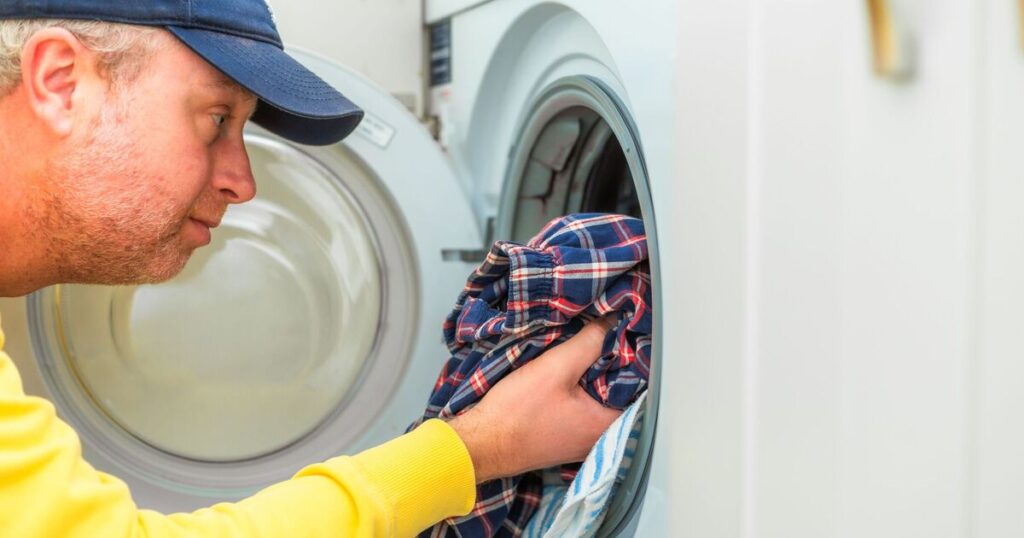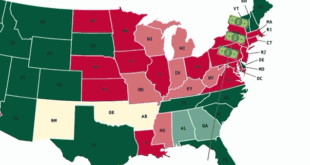
A money-saving expert has issued a warning to Brits with white goods in their homes, advising that “simple mistakes” can add to bills. As energy and water bills once again increase, Matthew Sheeran from Money Wellness says millions of UK households could be “throwing away” up to £500 a year by using their appliances incorrectly. “People are understandably focused on rising energy and water prices, but what many don’t realise is that the way they use their appliances can be just as important,” he said.
“The good news is that these mistakes are easy to fix – and the savings can really add up. Whether it’s running the dishwasher half-empty or ignoring your fridge’s coils, small changes could put hundreds of pounds back in your pocket every year.” Mr Sheeran then listed 12 ways people might be using their white goods incorrectly and how to save money.
Washing clothes at too high a temperature
Washing at 30C is just as effective as doing it at 40C or 60C for everyday clothes.
A typical wash at 60C uses around 1.5 to 2 kWh of electricity, whereas a 30C wash uses only 0.5 to 0.7 kWh, he adds.
If you are washing clothes at higher temperatures four times a week, you could be spending £50 extra a year.
Overloading the washing machine
If the drum cannot rotate properly, meaning clothes do not get cleaned effectively. This also puts extra strain on the appliance, potentially leading to more frequent repairs or a shorter lifespan.
An overloaded washing machine can increase energy consumption by up to 15%, leading to £30 extra annually.
Leaving the dishwasher half-empty
The energy used is roughly the same whether the machine is full or half-empty, the money boffin said, so you are paying for energy that’s being used inefficiently.
If you run your dishwasher half-empty twice a week, it could cost you an extra £20 a year.
You can save money on both water and electricity by waiting until your dishwasher is full before running it.
Using the dryer instead of air-drying
Depending on the model, a dryer can consume 2.5 to 4.5 kWh per cycle, so using it frequently can “quickly add up”.
Frequent use of a tumble dryer could be adding £150 or more to your annual energy bills.
Whenever possible, he said, you should air-dry clothes indoors or outdoors to save on energy costs.
Leaving appliances on standby
Small amounts of energy add up over time, especially if many devices are left plugged in.
Leaving appliances on standby can add £30-£50 to your annual energy bill, and owners should unplug them when not in use or use a smart plug to turn them off automatically.
Ignoring energy efficiency ratings
Going for the cheapest option can be a “costly mistake in the long run”. This is because appliances with lower energy ratings (i.e. A+ or lower) use significantly more energy, meaning higher running costs.
A less efficient appliance could cost you up to £100 more a year in electricity.
You can save cash by choosing energy-efficient appliances. Look for the A+++ label to cut your energy consumption.
Running the washing machine with the wrong detergent
Using the wrong detergent can lead to residue buildup in your washing machine, which makes the appliance less efficient. You might therefore find yourself running an extra cycle to clear it out.
You could be wasting up to £15 a year on extra detergent and energy for additional rinse cycles.
Use the correct amount of detergent and choose an eco-friendly detergent where possible. They are less likely to leave residue, are gentler on fabrics and perform well at lower temperatures, helping your machine run more smoothly.
Not cleaning your fridge or freezer
Optimise your fridge or freezer performance by deep cleaning every two to three months. Do this by removing all contents and wiping down shelves and drawers, and use an antibacterial spray to help kill germs.
You should also regularly clean the condenser coils to ensure they run efficiently. The coils are usually at the back or bottom of the fridge.
Remove any panels and use a vacuum with a brush attachment to remove dust and debris. For safety, make sure you unplug the fridge before you do this.
Opening the oven door while cooking
Each time you open the oven door, it could increase energy consumption by up to 10%, potentially costing an extra £20 to £30 annually.
Resist the temptation to open the oven door, and use the oven light to check on your food instead.
Running appliances during peak hours
Running appliances during peak hours can increase your energy bills by 10 to 20%.
Instead, use time-of-use tariffs to run your appliances during off-peak hours, which will save you money on your energy bills.
Not using the right appliance for the job
Sometimes, using the wrong appliance for a task can waste energy. Boiling a small amount of water in a kettle, for example, can be more energy-efficient than using a saucepan, and a slow cooker uses less energy than an oven for some meals.
Using the wrong appliance can waste up to 15-20% more energy.
People have been urged to be mindful of which appliance is best for the job, and use the most energy-efficient option available.
Failing to defrost the freezer
If your freezer is not defrosted regularly, it will require more energy to keep food frozen. Ice buildup makes the freezer work harder, increasing your energy consumption.
A build-up of ice can add £30-£50 to your annual energy bills.
It is advised that Brits should defrost their freezer regularly, especially if the ice is more than a quarter of an inch thick.
 Latest World Breaking News Online News Portal
Latest World Breaking News Online News Portal






